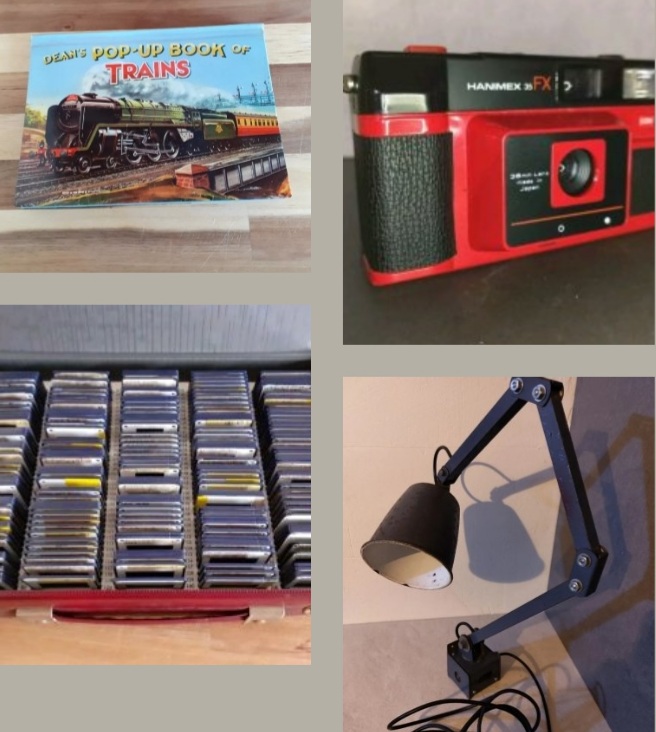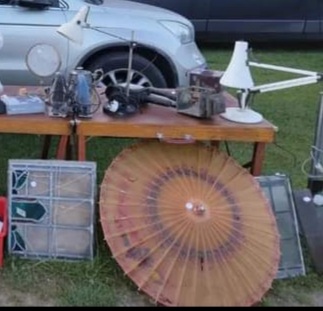Origins in the United Kingdom
Car boot sales, a quintessentially British phenomenon, have their roots in the United Kingdom during the 1970s. The concept originated from the idea of selling unwanted household items from the boot (or trunk) of a car. This practice was inspired by traditional flea markets and church bazaars, where communities gathered to sell and buy second-hand goods. The car boot sale took this concept and added a mobile twist, allowing sellers to easily transport and display their wares.
The first recorded car boot sale is often attributed to Father Harry Clarke, a Catholic priest in Stockport, who organised a sale in 1976. Clarke was inspired by similar sales he had seen in Canada and believed that the practice could help raise funds for charity. The success of this initial event spurred the popularity of car boot sales across the UK.
By the 1980s, car boot sales had become a widespread and popular weekend activity. They offered an affordable way for people to declutter their homes, make some extra money, and find bargains. These sales often took place in large open spaces such as fields, car parks, and school grounds, making them accessible to a broad audience.
Car boot sales have had a significant cultural impact in the UK, reflecting the nation’s love for bargain hunting and recycling. They have become social events, where communities come together not just to buy and sell, but to interact and share experiences. The informal nature of these sales creates a unique atmosphere, distinct from traditional retail environments.
Over the decades, car boot sales have also become popular in other countries, including Australia, New Zealand, and various parts of Europe. Each region has adapted the concept to fit its own culture and traditions, but the core appeal remains the same: the thrill of the hunt for hidden treasures and the opportunity to participate in a community-oriented activity.
The Early Morning Tradition
Practical Reasons
One of the most distinctive features of car boot sales is their early morning start. These events typically begin at dawn, with sellers arriving even earlier to secure a good spot and set up their displays. There are several practical reasons for this early start:
- Maximizing Daylight: Starting early allows sellers and buyers to make the most of daylight hours, especially important in countries with shorter days during certain seasons.
- Avoiding Heat: In warmer months, starting early helps to avoid the peak heat of the day, making the experience more comfortable for everyone involved.
- Availability of Space: Many car boot sales take place in areas that are used for other purposes during the day, such as school grounds or car parks. Starting early ensures the space is cleared and available for regular use later.
The Bargain Hunter’s Mindset
For many attendees, the early morning start is part of the appeal. There’s a sense of excitement and anticipation that comes with being among the first to browse through the items on sale. Serious bargain hunters believe that arriving early increases their chances of finding the best deals and rarest items before they are snapped up by others.
Social and Community Aspects
The early morning tradition also fosters a sense of camaraderie among regular attendees. Sellers and buyers often get to know each other over time, sharing tips and stories. The shared experience of rising early and braving the elements creates a bond that enhances the community spirit of car boot sales.

The Appeal of Car Boot Sales
One of the main draws of car boot sales is the thrill of the hunt. Unlike shopping in a regular store, where items are neatly organised and prices are fixed, car boot sales offer an unpredictable and dynamic shopping experience. Buyers never know what they might find, and the possibility of discovering a hidden gem or a valuable antique adds an element of excitement.
Car boot sales are known for their affordability. Sellers are often motivated by the desire to declutter and are willing to part with items at low prices. This makes car boot sales an attractive option for budget-conscious shoppers. Additionally, the variety of goods available is vast, ranging from clothing and toys to electronics and collectibles. This diversity ensures that there is something for everyone, no matter their interests or needs.
Conclusion
Car boot sales are more than just markets; they are cultural phenomena that reflect the values and interests of the communities they serve. Their history is rooted in practicality and community spirit, and their early morning tradition adds to their unique charm. The appeal of car boot sales lies in the excitement of discovery, the affordability of goods, the promotion of sustainable practices, and the opportunity for social engagement. Whether you’re a seasoned seller, a keen bargain hunter, or a curious newcomer, car boot sales offer a vibrant and enriching experience that continues to thrive across the world.
